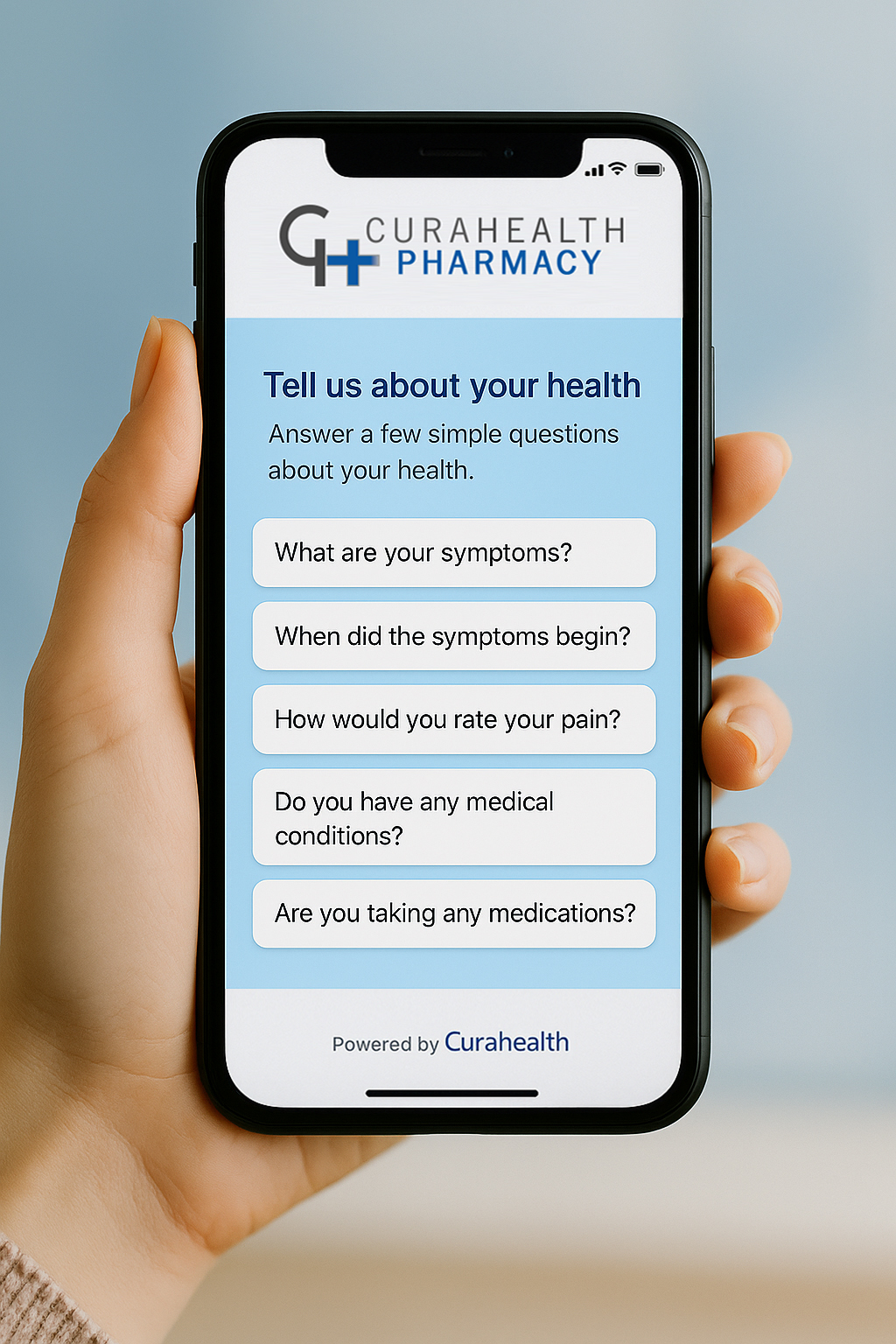Hydroxychloroquine (Generic Plaquenil)
Dosage: 400 mg, 200 mg
Price: starts from $0.75 per pill



Dosage: 400 mg, 200 mg
Price: starts from $0.75 per pill



Plaquenil (hydroxychloroquine) is prescribed for malaria, lupus, and rheumatoid arthritis. It works by modulating immune activity and inflammation. Taken daily, it requires regular eye exams due to potential vision side effects. Use exactly as prescribed and don’t stop without consulting your doctor, especially when used for autoimmune conditions.
Get Plaquenil (hydroxychloroquine) online with guidance from U.S. qualified physicians. Reliable delivery, secure care, and trusted anti-inflammatory support.



Tell Us About Your Health
No need for an office visit. Just take two minutes to describe your symptoms and medical history online — anytime, from anywhere.
Reviewed by a Doctor
Our licensed provider will assess your info and recommend the right treatment. You can connect with them by message, phone, or video.
Get Your Medication
If a prescription is approved, your medication will be shipped quickly to your door in discreet packaging to protect your privacy.
Hydroxychloroquine (Plaquenil) is used in the treatment and prevention of malaria, as well as in systemic diseases and diffuse connective tissue diseases. Plaquenil is the most famous of the active antimalarial drugs, which is included in the list of vital and essential drugs.
This is due to the fact that Hydroxychloroquine quickly destroys malaria pathogens and because it also has another effect: it suppresses an excessive immune response.
Hydroxychloroquine has the following properties:
Plaquenil (Hydroxychloroquine) is prescribed for a number of skin and autoimmune diseases, as the substance suppresses the activity of the immune system.
An aggravating factor in photodermatitis is the body’s own immune reaction, which perceives damaged areas of the skin as foreign and seeks to destroy them.
The immunosuppressive effect of the substance allows you to suppress allergic and inflammatory reactions and cure dermatitis.
Plaquenil has quite a few contraindications, as it creates a significant burden on the kidneys and liver. In addition, hydroxychloroquine causes and markedly worsens visual disturbances.
The main direct contraindications include:
Plaquenil should be prescribed very carefully for visual disorders:
Before prescribing medication, an eye examination is required. Visual acuity, light perception are assessed, and the condition of the fundus is determined. During long-term therapy, the examination is repeated at least once every six months.
There are a number of pathologies for which the use of the drug may be inappropriate. In each such case, the doctor must evaluate the actual risks and benefits of using hydroxyl chlorine:
The greatest concern is caused by changes in the organs of vision: some of them are asymptomatic. If the transformations have not crossed a certain limit, they disappear after the end of the course of treatment.
However, the risk of progression of vision defects remains.
There is a clouding of the cornea, swelling, visual acuity decreases, halos, and fear of light appear. Most often, the changes are reversible.
Possible skin rashes, itching, changes in skin color, and hair discoloration. These symptoms disappear after completing the course. In rare cases, acute exanthematous pustulosis is observed, which must be distinguished from psoriasis since the drug also enhances the manifestations of the latter.
The gastrointestinal tract may cause anorexia, diarrhea, pain, and sometimes vomiting. When the dose is reduced or discontinued, the symptoms disappear.
Dizziness, hearing loss, tinnitus, and headaches are uncommon. Weakness, atrophy of muscle groups, and suppression of tendon reflexes may appear. All changes are reversible.
Changes in the cardiovascular system are observed much less frequently – cardiomyopathy, conduction disturbances, and possible inhibition of hematopoietic functions. Cases of anemia, leukopenia, and thrombocytopenia have been reported.